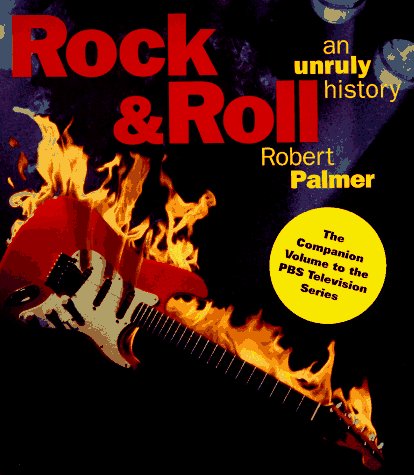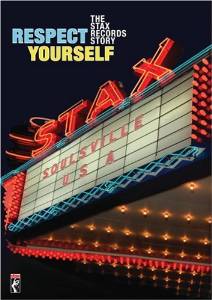
During the time I was growing up,the majority of men around me were mainly interested in watching sports on television and action films in the movie theaters. From adolescence onward, the one thing that moved me in both media were musical documentaries about the black American musical spectrum that I was then absorbing like a sponge. The understanding of rhythm and harmony I received from seeing these musicians perform,speak of their histories along with the music they made provided me with a full sensory experience far beyond what I could’ve received from the limited literature of the era I was receiving.
Initially I was going to combine documentary films with biopics in the same blog. Since dramatizations are a completely different medium of film making technique? Decided instead to break them up in separate but related blogs. Also because I received a very different level of education from them as well. Before hand,some of these documentaries are very hard to find even on YouTube. Many have never even been issued on DVD. Yet I highly recommend seeking all of them out if you are looking to seek out a first hand education on the soul,jazz,funk and R&B musical spectrum.
This aired on PBS in 1995. The eighth part of it focused specifically on the genre of funk and it’s development from James Brown on through George Clinton. The final volume focused on hip-hop. The names of Afrika Bambaataa and Grandmaster Flash first came to me through watching this documentary. Not to mention the knowledge of rap’s musical roots in Jamaican reggae DJ’s such as Kool Herc. While some of the narrative commentary shows a limited understanding of the connectivity of black American music’s connectivity? The insights of interviewees such as Maceo Parker,Alan Leeds,George Clinton,Afrika Bambaataa and Chuck D are extremely insightful to what drove the music forward.
Narrated by the late Chess Records icon Etta James,this documentary not only opened my eyes to understanding the history of blues,soul and funk in 60’s Chicago. But was also the first glimpse I got into the idea of black American financial empowerment. Jerry Butler explained it best in this when describing how Curtis Mayfield starting his Curtom label,taking control of his publishing,took the Chicago scene into the funk era by closing down the era of people such as Muddy Waters and John Lee Hooker functioning as “musical sharecroppers”.
The strong emphasis this has on United Record Distributors,the only black American record distributors in their time run by the Leaner brothers,proved extremely significant in my understanding of black America’s experience with capitalism for years to come. And the level of communication in the civil rights era through the iconic radio station WVON,such a significant force in the city that if an artist wasn’t on their play list,record stores would not stock their music. Possibly my favorite musical documentary all told.
It was this epic documentary mini series,hosted by Diana Ross that really allowed me to understand the internal workings of Motown records. From it’s foundational years when Berry Gordy,having failed as a record store owner in Detroit,began writing songs for Jackie Wilson. And then borrowed $800 from his family to start what become an American musical institution. A black American institution. The interviews follow Motown’s changes from it’s salad period in the mid 60’s,through the funk and disco era when the artists had the most creative control,on through Berry deferring ownership of the company in the mid 80’s through it’s resurgence with vocal boy bands and then Puff Daddy Combs remixing the Jackson 5’s “I Want You Back”. A very complete and thorough history on The Sound Of Young America.
Overall I’d apply the same viewpoint to this documentary as I would apply to PBS’s Rock ‘N’ Roll from seven years earlier. It’s understanding of musical connectivity,absolutely key to jazz,is more limited to the participants (such as Ken Burns and Wynton Marsalis) perceptions of the music than it is lacking. Yet the decision to weave an internal documentary on the life and career of Louis Armstrong as a key figure in jazz is double edged: it didn’t quite succeed in term of historical continuity but did showcase how the aspect of modern black American musical might’ve derived from Armstrong’s approach. I learned about important sociological figures in the music such as Buddy Bolden,James Reese Europe and Sidney Bechet here as well. With the help of my father’s asides,this helped complete my historical understanding of jazz.
Went to Portland Maine to see this movie,in a little movie theater underground of a local clotherie. It was actually a suitable environment for this film. It traces Grand Mixer DST’s pioneering turntable work with Herbie Hancock on his “Rockit” project. It than goes on to discuss the fine art of crate digging for used vinyl by hip-hop scratch artists. There was no irony to the fact that I was myself crate digging myself,only for my personal listening pleasure and musical enlightenment,less than an hour after seeing this in the used record stores of the city of Portland. One of those films that was both influential and validating exactly at the time I saw it.
Probably the one documentary I was the most excited to learn about upon it’s release. It follows the ascension of Maurice White from his childhood in Memphis to switching his college major from premed to music and playing with the Ramsey Lewis Trio before forming his first and second incarnations of Earth,Wind & Fire. The fact that bassist/trombonist Louis Satterfield,saxophonist Andrew Woolfolk,drummer Ralph Johnson and guitarist Al McKay go deeply into their own insights on how music functioned in terms of being a member of Earth Wind & Fire during it’s prime period.
In terms of the Rhino Classic Album series? This now very hard to find DVD interviews all of the musicians involved in the long winded and dramatic recording sessions to what is considered Stevie Wonder’s shinning musical pinnacle. Stevie demonstrates the double keyboarded Yamaha GX-1 (known as the Dream Machine)- a polyphonic synthesizer I find sonically and visually impressive. Another favorite part is where Stevie showcases how his musical acumen allowed him to cover over for a harmonic solo at the end of “Isn’t She Lovely” that a harmonica player of his caliber shouldn’t have made. Hearing the musical insights of this mans inner visions was a hugely important musical milestone for me.
Marvin Gaye’s history has,especially in the hands of author David Ritz,was generally depicted for me literarily in extremely magisterial terms. This BBC documentary,one that came my way through a life changing act of barter in itself,really did a lot to put more of a human face on the complexities of Marvin Gaye’s musical and personal life. Through interviews with the artist himself and penetrating reenactments of the even of his childhood? I’d recommend this as the best available visual documentation on Marvin Gaye.
Tom Dowd is probably listed as the producer of more albums than anyone in American music history. This man started out working for the Manhattan Project on the atomic bomb. And his career as a producer extends throughout both the black music and rock era spectrum-an array of artists as diverse as John Coltrane to Lynyrd Skynyrd. The amazing about this documentary isn’t merely the musical history. But Down provides an inside look,right at the mixing board,onto how he instrumentally layered songs such as “Layla”. A key story for understanding the intricacies of the musical creative process.
For many years Bob Marley was mainly known to me as a superficial icon of a certain local stoner culture,one that tended to feel sociopolitical change derived solely from drug use and how it changed the consciousness. This story chronicles the complex wheel of Marley’s musical life-starting from his childhood in Trenchtown,Kingston in Jamaica through his near assassination attempt in 1976 through his passing on from Melanoma in 1981. This really broke it down exactly what about his back-round and viewpoint on the Jamaican music industries corruption that motivated the sociopolitical consciousness of the reggae music he helped to pioneer and export the world over in his lifetime.
It was thanks to Netflix that I found out about this documentary about Soulville USA! Stax Records were both the rival and opposite to Motown’s business model during it’s mid 60’s heyday. This is extremely thorough on it’s representation of Stax literally rising back from the dead following the double cross of Jerry Wexler’s Atantic Records ownership over Stax’s catalog following the death of Otis Redding, the labels burgeoning social consciousness embodied in Isaac Hayes,the Staple Singers and Wattstax during the early 70’s and financial bloating bringing the label down mid decade. Than Stax came back decades later-with a music school for young musicians to boot. Especially following the creative managing of Al Bell and interviews with many of the artists from Stax’s heyday? This is the essential story of Southern Soul from when Stax really bought the funk into the music.
Michael Jackson’s story has been re-purposed in the media so many times? It is nearly impossible to approach his life story with total objectivity. Thus far,this is one documentary that does the best job of doing so. For one,it concentrates on Mike’s late teens and early adulthood in terms of his musical development. And by interviewing everyone from Bobby Taylor,who first discovered the Jackson’s performing onto 80’s era manager Frank Dileo? It strips away some of the overbearing adulation and downright hero worship that this distinctive and funky musical talent found somewhat responsible for his own end. An end that came far too soon. Probably the essential Michael Jackson documentary thus far.
Unsung is an unprecedented documentary series on the cable network TV One. The reason for it’s importance is that it profiles an often underrated musical icons from within the soul/funk spectrum. And does so with a great level of care and compassion. As of now I’ve not been privileged to see every episode of the series. Yet the stories of people such as Tammi Tarrell,David Ruffin,Donny Hathaway,Full Force,Angela Bofill and Heatwave lead singer Johnnie Wilder provided an excellent insight into artists either misrepresented or not even spoken of broadly in other media circles.
It was a reference in Paul McCartney’s documentary Wingspan that first gave me indication to the name Fela Anikulapo Kuti. This story probably brings my understanding of the African American musical spectrum near to it’s final stages. My conversations with blogging partner Rique are consistently referencing Kuti. And this film really expands on that understanding. The understanding of Fela as the Nigerian James Brown,whom he in fact was very highly influenced by through travelling through America during the years of black power in the late 60’s.
While the man bought the sound and social consciousness of total rhythm into his combination of African Highlife and jazz-funk? He also set upon living a lifestyle of breaking down conventions,largely coming out of the corruption that led to tragic events such as the murder of his own mother. This really embodies the full spectrum of emotion a life can have-from pioneering,to humorous to tragic. And it also helps bring out peoples understanding and misunderstanding of what African culture is really all about.
Sometimes when I try to encourage people to watch more documentaries,they often respond by saying that they find them boring. At the end of the day they say? They want to escape,not learn. What I’ve personally come to understand is that knowledge functions as both a destination and an escape. Just depends on how you receive it. Being lectured at about topics by a teacher isn’t always the idea method of education. Yet through documentaries on a favorite subject? One can experience first hand,sometimes comic history,joy and tears from the viewpoint of all involved. And for me? These have all provided the ultimate in learning while being simultaneously entertained.













